March 29, 2024
A Brief History of South African Jazz
By Rusty Aceves
April 27 is the 30th anniversary of Freedom Day in South Africa. Here’s a deeper look at the history of the holiday and the leading figures from the South African jazz tradition.
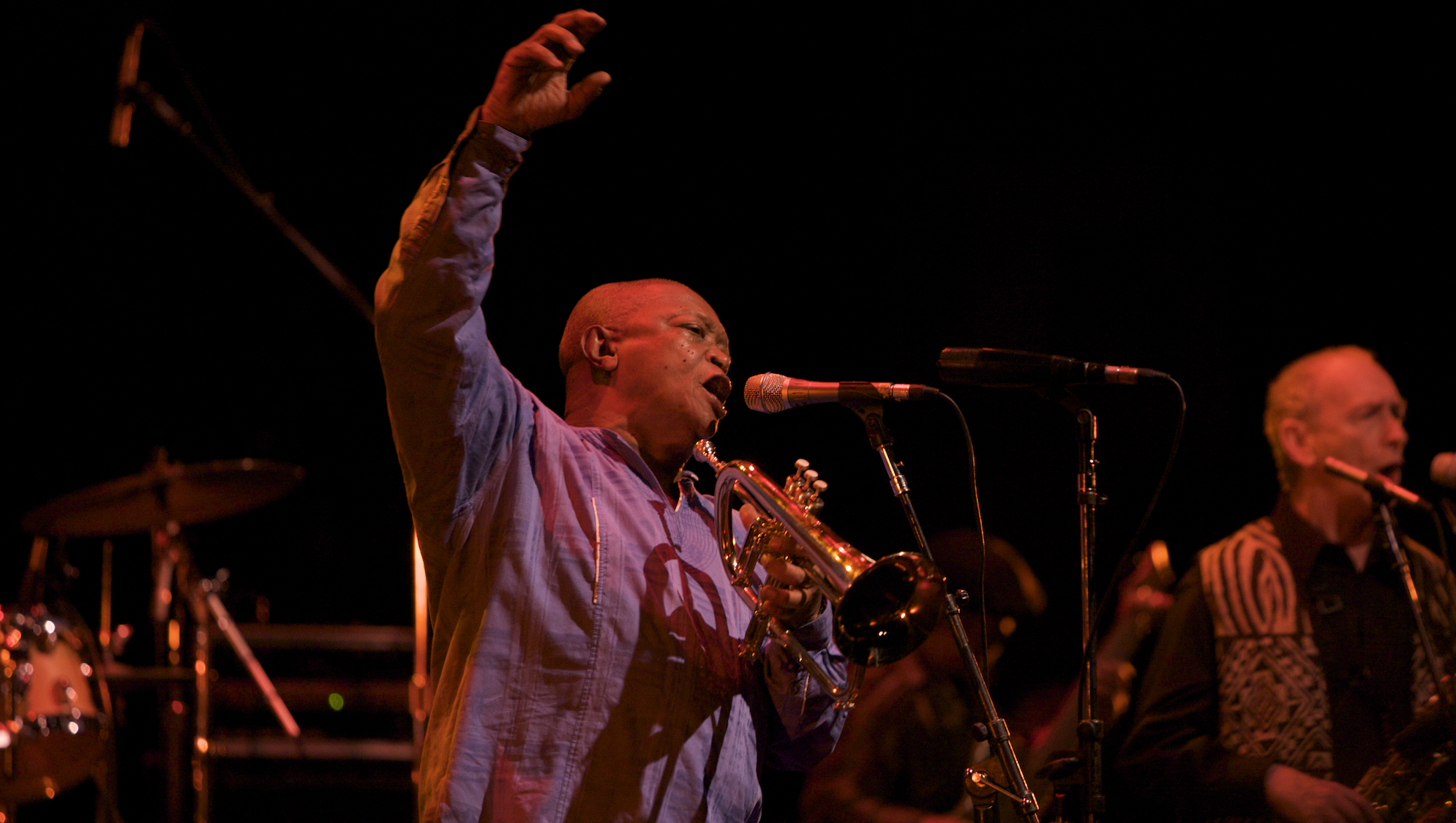
Hugh Masekela at SFJAZZ, 2009 (photo by Scott Chernis)
A hugely significant milestone approaches on April 27th, as South Africa celebrates 30 years of free elections and the introduction of a new constitution. That day in the spring of 1994 marked the end of apartheid and the re-introduction of basic human rights in a country that had lived under the unconscionable system of racist minority rule for over 75 years. Newly elected president Nelson Mandela addressed South Africa’s Parliament on election day, saying:
“Wherever South Africans are across the globe, our hearts beat as one, as we renew our common loyalty to our country and our commitment to its future”
The hope in Mandela’s words expressed a long-delayed swing of the pendulum toward justice, but over the decades that preceded that moment, Black South Africans looked for freedom where they could find it.
Systemic disenfranchisement of the Black population and the development of jazz in the country were inexorably interconnected, as South African musicians seeking a vehicle to both protest governmental repression and express creative freedom found a welcome spirit in the music coming from the United States in the first half of the 20th century.
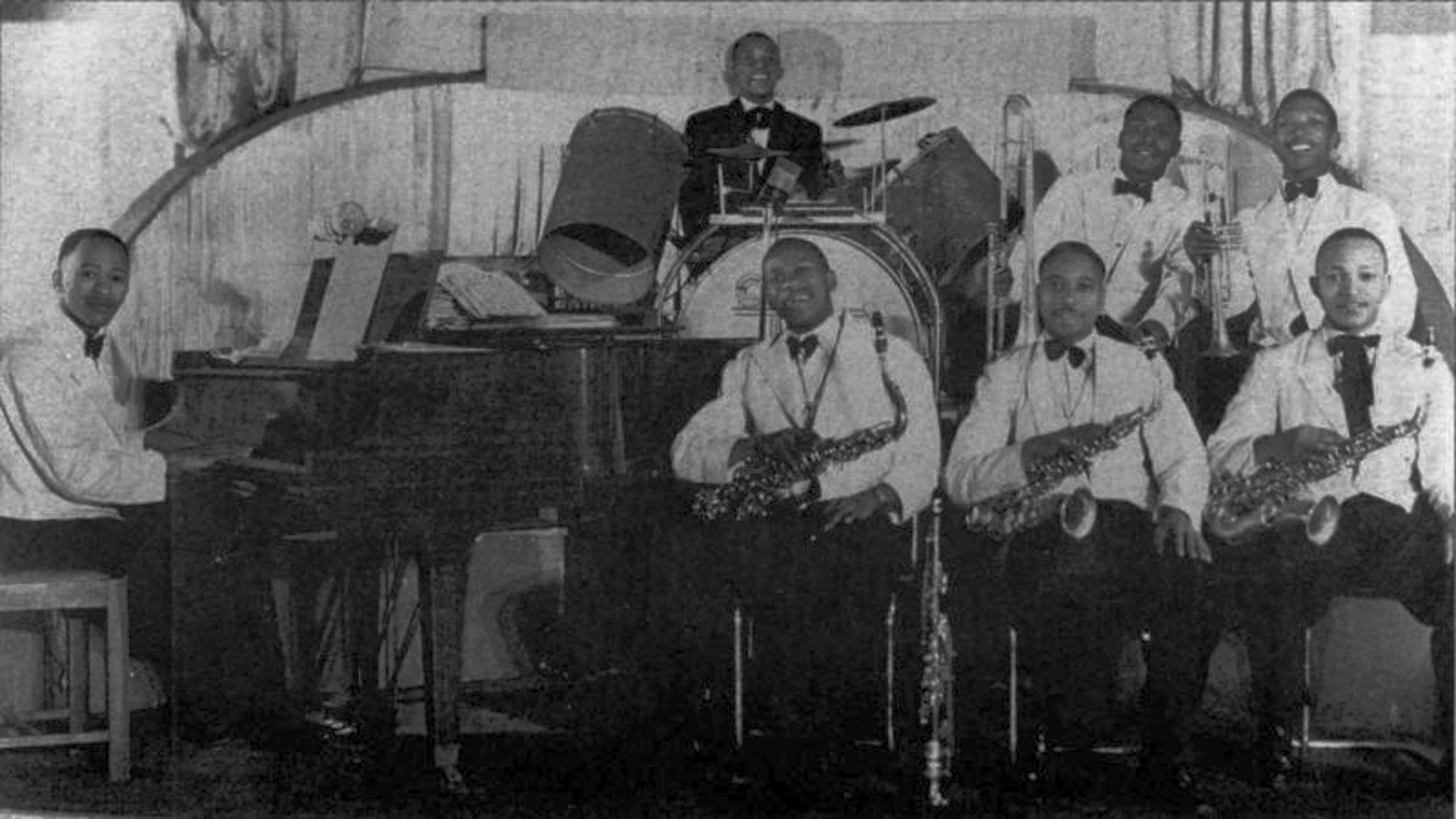
The Jazz Maniacs
New Orleans jazz became known in South Africa shortly after the first commercial recordings of the music were made in 1917, making the trek to Cape Town on merchant vessels from the United States in the early 20s. Bands inspired by early jazz began forming shortly after, primarily among the Western-educated Xhosa nation in Queenstown and the Johannesburg ghetto Sophiatown — an area that became a hotbed for innovation and experimentation before it was destroyed under apartheid.
As the music continued to evolve over the years, the ever-increasing level of sophistication gave rise to a new crop of South African musicians deeply versed in the jazz vocabulary, having been exposed to the current state of jazz via recordings and radio in addition to the American groups that were allowed to tour the country during the period. One of the biggest bands of the late 1930s, the Jazz Maniacs, melded the influence of Count Basie and Duke Ellington with Zulu styles – a mix that made an impression on a new generation of aspiring musicians including trumpeter Hugh Masekela, pianist Abdullah Ibrahim, and vocalist Miriam Makeba, among others.
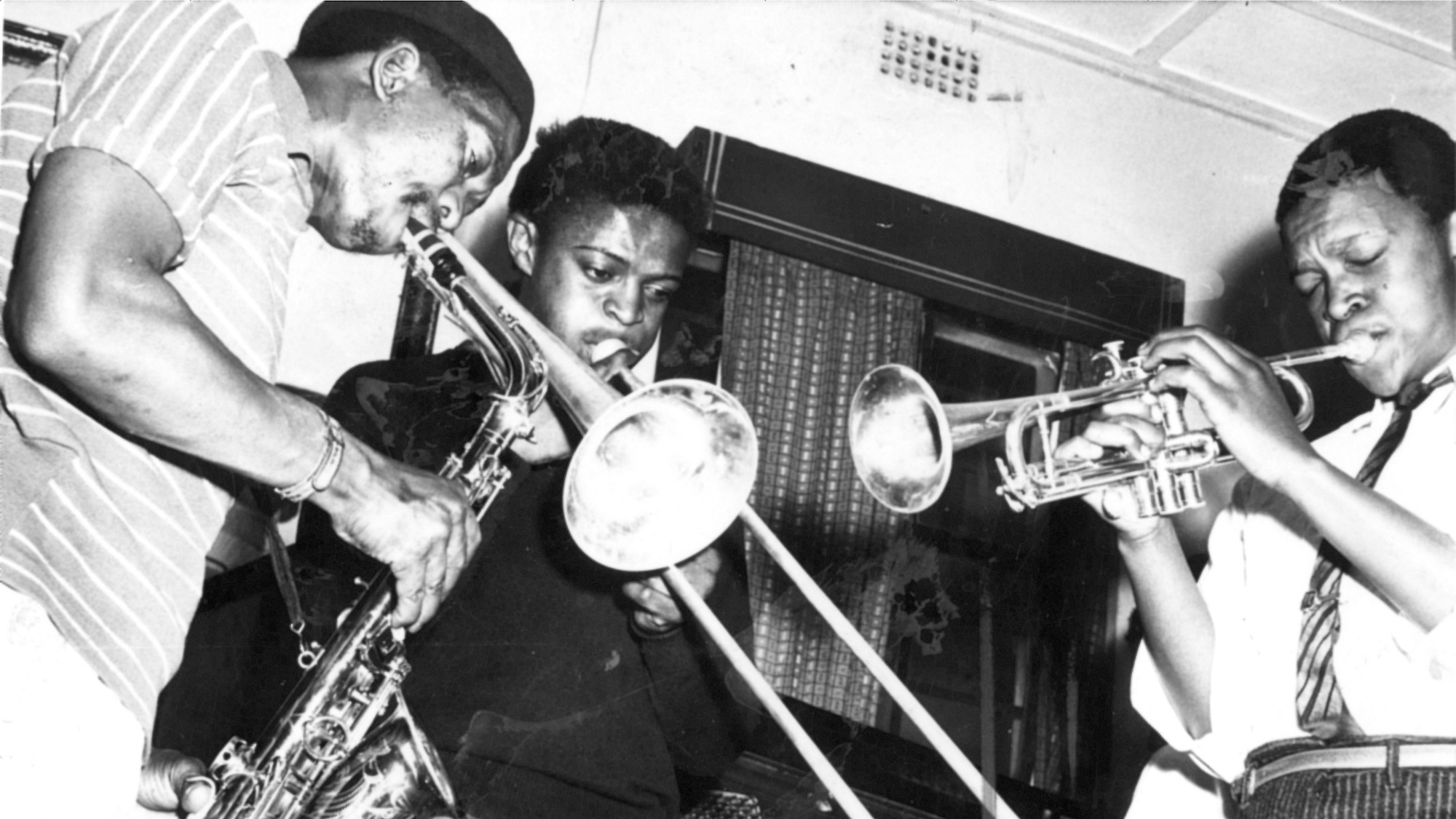
(L-R): Kippie Moeketsi, Jonas Gwangwa, and Hugh Masekela of the Jazz Epistles (photo: Halim's Photographic Service, Cape Town BAHA/Drum Social Histories / Baileys African History Archive / Africa Media Online)
Born in Kwa-Guqa Township in 1939, Masekela began learning piano and singing from an early age and was inspired to take up the trumpet at 14 after viewing Young Man with a Horn, the 1950 American film starring Kirk Douglas and Lauren Bacall based loosely on the life of early jazz icon Bix Beiderbecke.
In 1959, Masekela and Ibrahim formed the Jazz Epistles, a short-lived group inspired by Art Blakey’s Jazz Messengers that had the distinction of being the country’s first bebop group and the first jazz ensemble to record an album. The Sharpeville Massacre of March 1960 led to drastically increased enforcement of apartheid and greater repression of African culture, and the Jazz Epistles were dissolved, with Masekela fleeing to the United States and Ibrahim to Europe before he also immigrated to the U.S.
Masekela moved to Los Angeles in the late 60s during the ‘Summer of Love,’ scoring a #1 hit on the American ‘pop charts with his GRAMMY-nominated single “Grazin’ in the Grass.” He released over 40 albums and was recognized around the world as ambassador of South Africa’s jazz legacy before his passing in 2018.
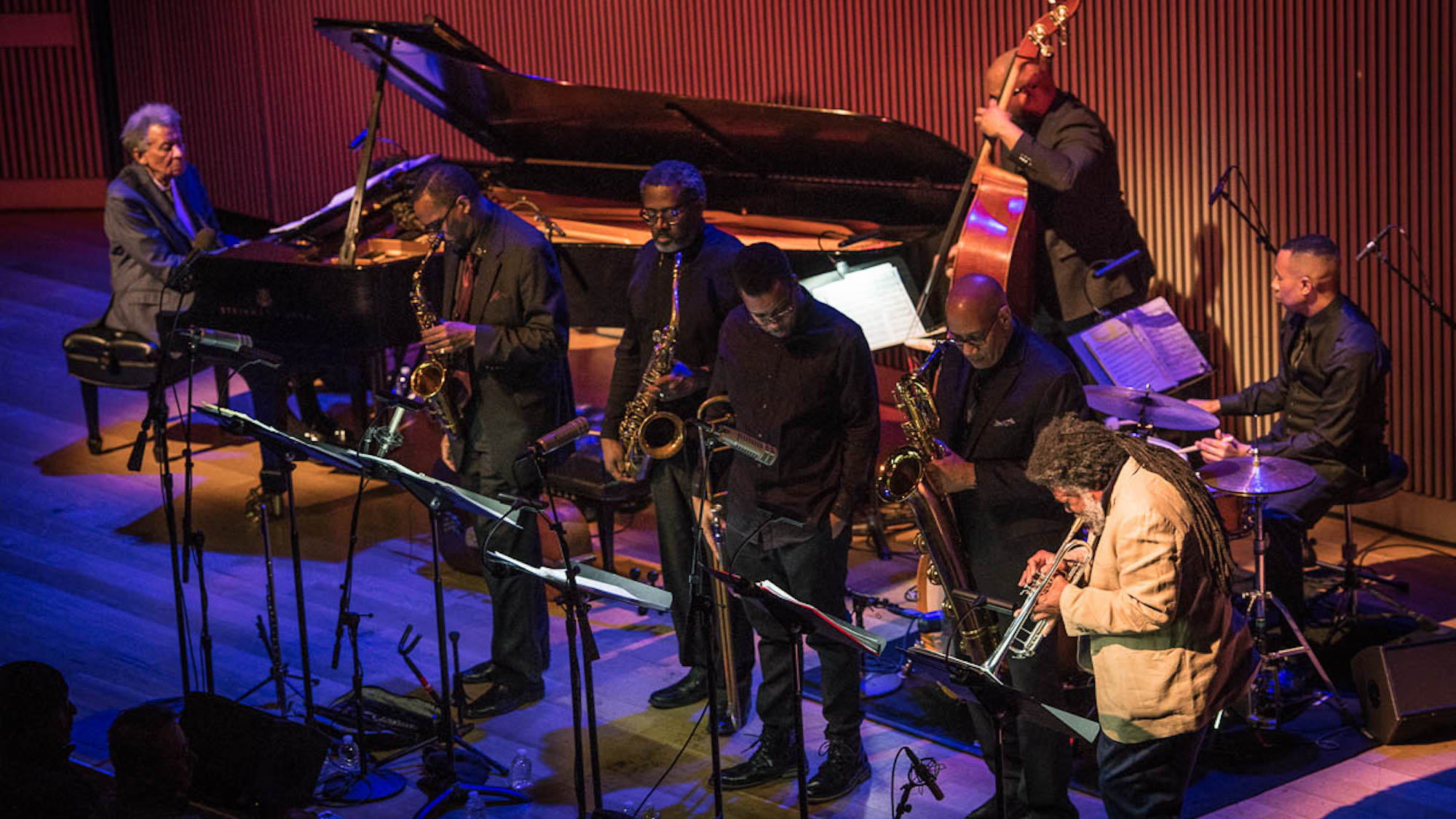
Abdullah Ibrahim and the Jazz Epistles with Wadada Leo Smith at SFJAZZ, 2/18 (photo by Don Dixon)
A Cape Town native, Ibrahim was born Adolph Johannes Brand in 1934 and showed innate talent for the piano as a youth. He made his professional debut at 15 and developed an advanced bebop approach as leader of his own trio under a stage name, Dollar Brand.
After leaving South Africa in 1962, Ibrahim reformed the Dollar Brand Trio in his adopted home of Switzerland. Upon hearing him performing in a Zurich club, Duke Ellington became a mentor and champion of the young pianist, helping him obtain a record deal and using the power of his name to help promote Ibrahim’s debut release, Duke Ellington Presents the Dollar Brand Trio.
Upon settling in the U.S., Ibrahim subbed on tour dates for Ellington, and began an influential career as a bandleader and composer. He returned to Cape Town after the end of apartheid and maintains deep connections to the culture of his homeland and its impact on the jazz tradition. He was named an NEA Jazz Master in 2018.
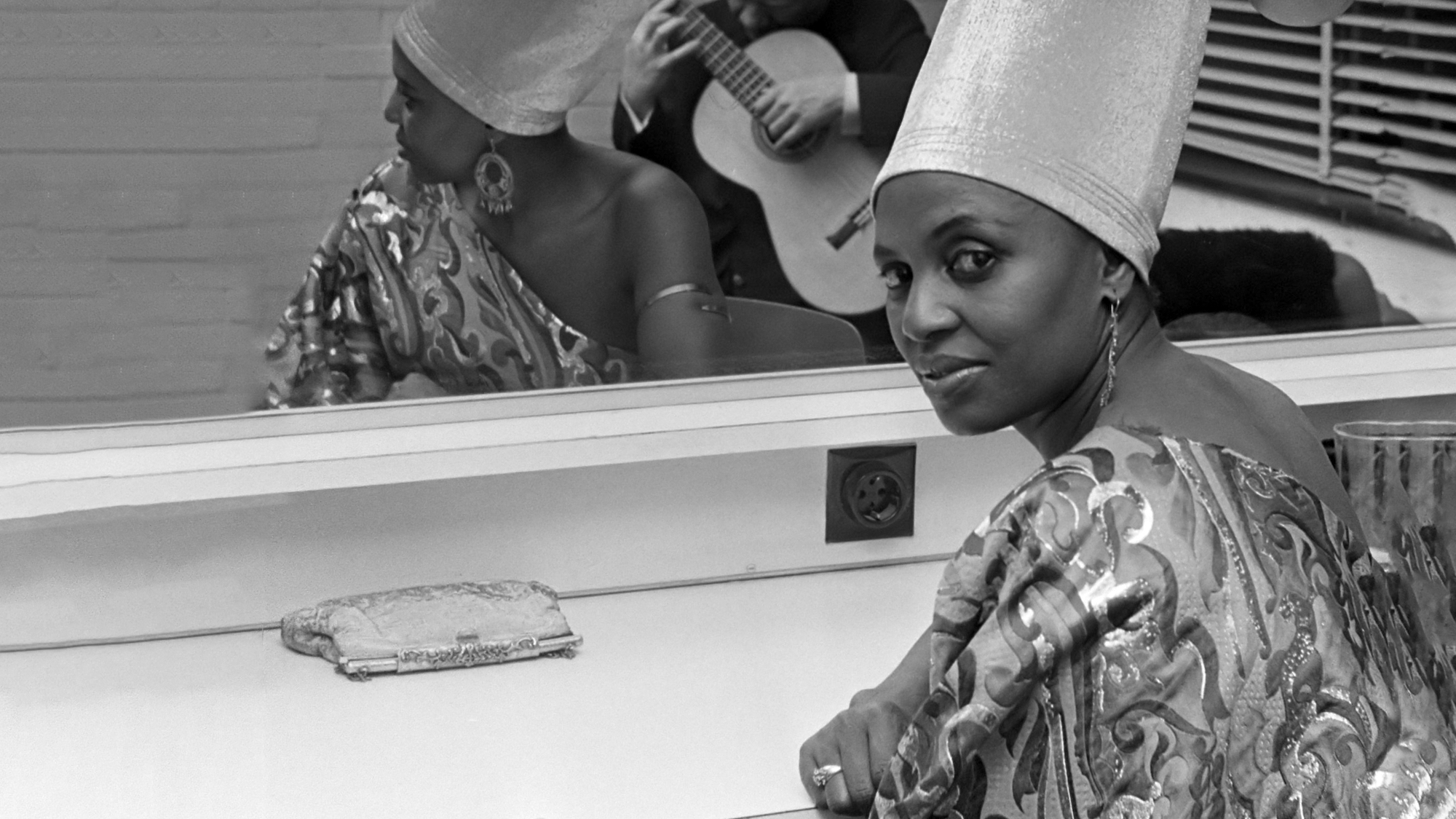
Miriam Makeba, 1969 (photo: Netherlands National Archive)
Vocalist and Johannesburg native Miriam Makeba was multi-talented musician, actor, and civil rights advocate whose professional career began under apartheid, and who became a highly visible symbol of African music and political consciousness. Her 1956 single with the Manhattan Brothers group, “Lakutshona Ilanga” (“Lovely Lies”), was the first South African recording to make the Billboard Top 100 in the U.S., and her appearance in the pivotal anti-apartheid film Come Back, Africa made her an international symbol of Black identity.
The fame from her movie appearance and early recordings allowed her to travel, and it was during a trip to London that she met Harry Belafonte, who would become an important mentor and collaborator. The release of Makeba’s 1967 hit “Pata Pata” increased her stardom in Europe and the U.S., though her outspoken stance against apartheid made her an exile from South Africa for several decades, and her brief marriage to Black Panther Party co-leader Stokely Carmichael damaged her popularity in the U.S.
Her powerful vocals on her ex-husband Hugh Masekela’s composition “Soweto Blues,” written in response to the 1976 Soweto uprising and massacre, were an incisive damnation of the South African government’s system of oppression and brutality. Masekela was quoted as saying, "there was nobody in Africa who made the world more aware of what was happening in South Africa than Miriam Makeba.”
In her own words:
“I look at an ant and see myself: a native South African, endowed by nature with a strength much greater than my size so I might cope with the weight of a racism that crushes my spirit. I look at a bird and I see myself: a native South African, soaring above the injustices of apartheid on wings of pride, the pride of a beautiful people.”
For SFJAZZ’s week of performances honoring South African Freedom Day, acclaimed Cape Town vocalist Melanie Scholtz will pay tribute to Makeba, joined by Kenyan pianist Aaron Rimbui (4/26-27).
Other artists performing during the week include the innovative guitarist Derek Gripper with a solo performance on 3/25, and concludes with a night featuring saxophonist and former Hugh Masekela collaborator McCoy Mrubata (3/28) — an artist JazzTimes calls “a living legend of South African jazz.”
The depth and breadth of South Africa’s jazz history and current scene easily exceeds the scope of a single article, so we would heartily encourage you to dig deeper and explore further. A brief list of musicians whose work deserves the highest recognition include pianist Nduduzo Makhathini, bassists Johnny Dyani and Sipho Gumede, singer and songwriter Sipho Mabuse, saxophonists Bheki Mseleku, Zim Ngqawana, Winston Mankunku Ngozi, Kippie Moeketsi, Moses Khumalo, and Dudu Pukwana, trombonist Jonas Gwangwa, drummers Tumi Mogorosi and Louis Moholo, and composer and producer Don Laka, among many, many others. We would also recommend author Gwen Ansell’s definitive book on the history of the music, Soweto Blues.
McCoy Mrubata, Derek Gripper, and Melanie Scholtz with Aaron Ribui perform in the Joe Henderson Lab in celebration of South Africa’s Freedom Day (4/25-28). Tickets and more information are available here.
